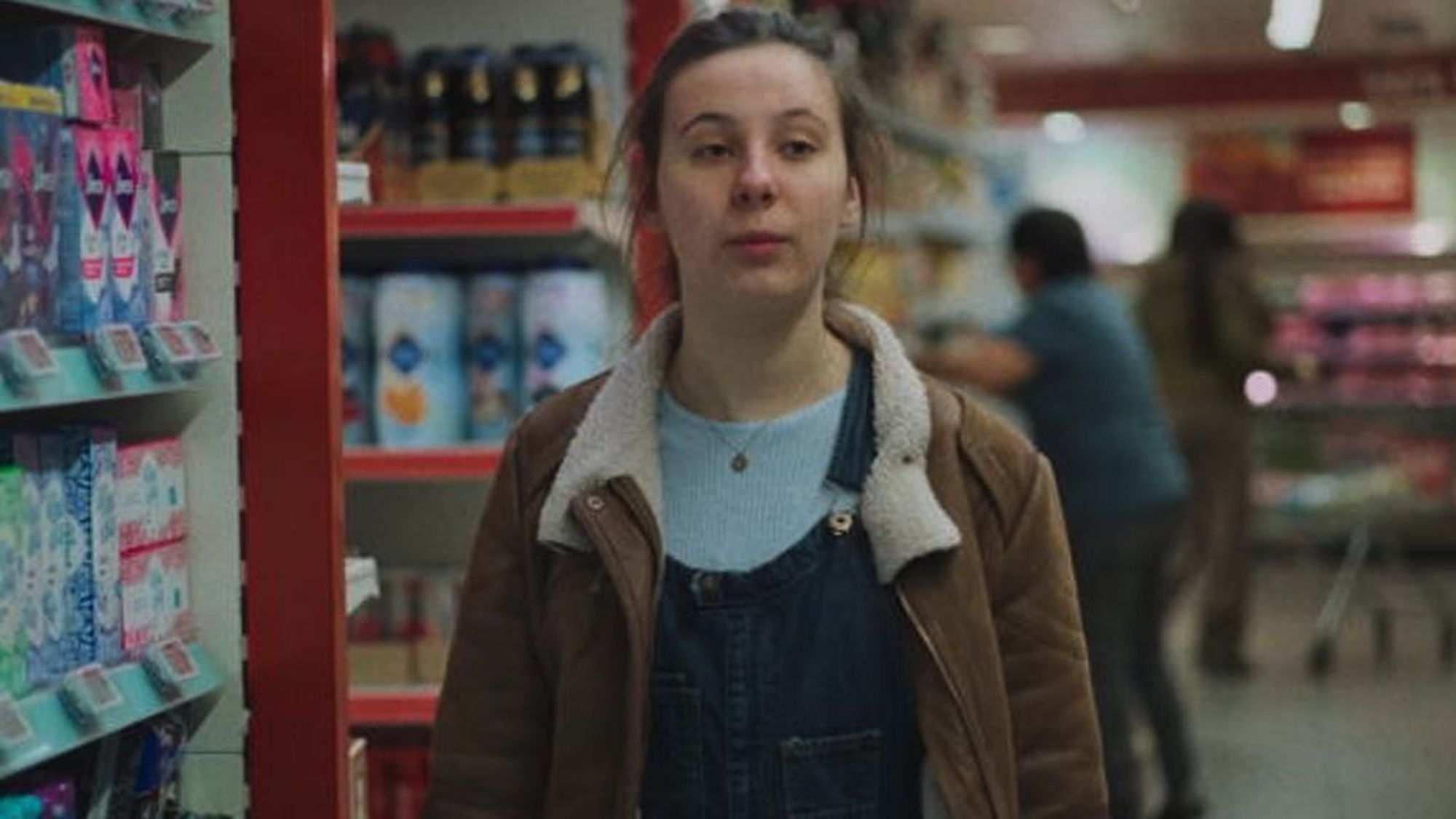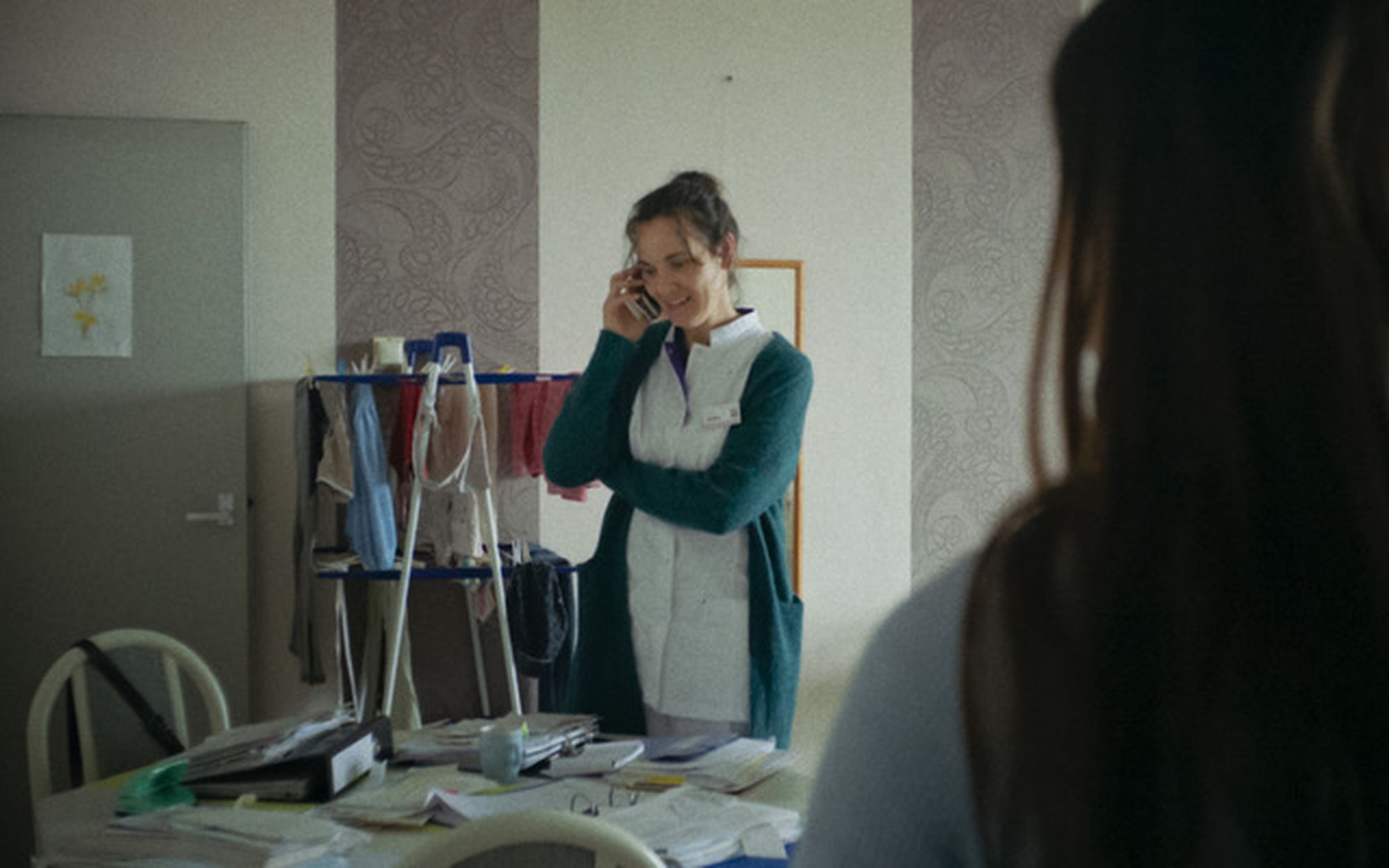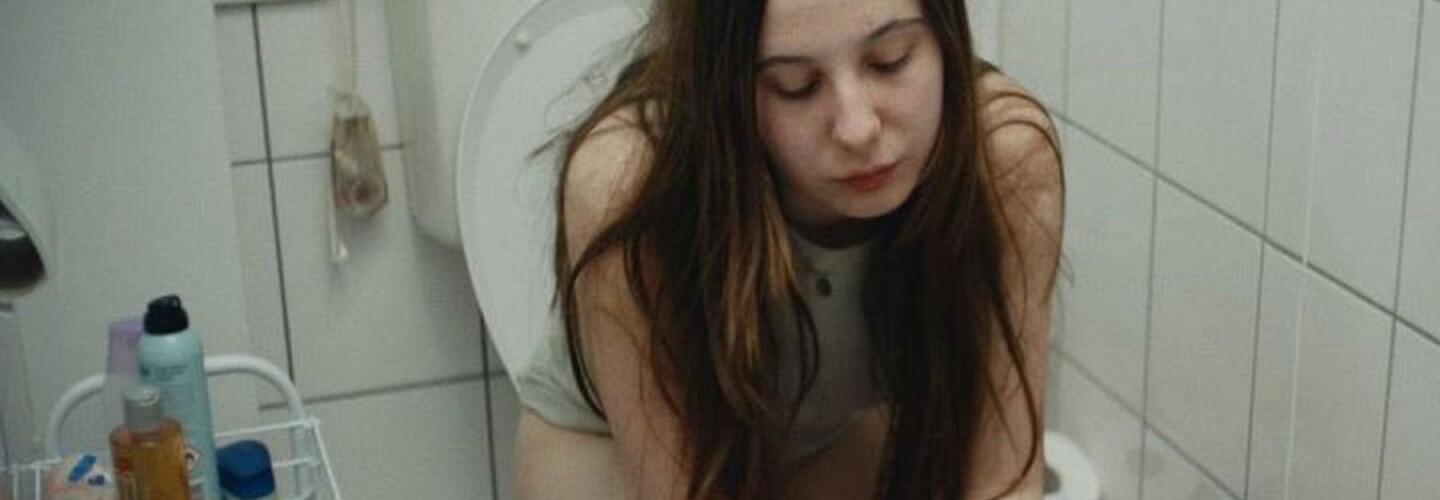
It is a sad truth, and one not spoken about enough, that menstruation products are considered a luxury by the powers that be and even in countries where the tax on these products has been ever so graciously reduced or removed, they still remain unaffordable yet are wholly necessary. Only Scotland in the UK offers free products on a national scale, with New Zealand and Kenya distributing them for free in schools but this is not by any means enough. Dutch Director Emma Branderhorst, a recent graduate of the Utrecht School of the Arts, stumbled across an article about period poverty which led her down the intense and maddeningly revealing path of research that informed her hard hitting short Spotless (Vlekkeloos). A Young Director Award Gold winner, Branderhorst is known for dealing with societal issues and more niche subjects which, as she explains in our interview below, initially meant she never thought her work would be recognised at the level it is now. Deploying her powerful, naturalistic female regard Branderhorst’s short intimately follows Ruby, played by Alicia Prinsen, whose vulnerability permeates every frame as she struggles with navigating her period in the crushing knowledge that there is no money for the products she so desperately needs. Ahead of tonight’s Best of the Fest screening at Bolton Film Festival we spoke to Branderhorst about her preference for working with non-professional actors, her dislike of cutting within scenes and her hopes for raising much needed awareness with the film.
– The following interview is also available to watch at the end of this article.
I know that you like to broach often difficult societal issues in your films, why did you choose to talk about period poverty in Spotless?
When I was younger and in high school, the subject of periods was always taboo which we show in a scene in the film where the girls huddle over a tampon as if it were drugs or something which is terrible. This was the start for me as a writer as I wanted to address this taboo. What I have seen in films is blood represented as blue, glittery or pink which isn’t what my blood looks like but I was still surrounded by the taboo making it difficult to talk about it. After my graduation film Under the Skin I realised it was a new topic for me to discuss. When starting a film I always do a lot of research and I stumbled upon an article about period poverty which is more prevalent in the news now but the film was created over 2 years ago and the articles were few and far between but this article made me dig deeper and really was the start of the film.
Spotless was written by yourself and Milou Rohde, how did you two come together?
We were at school together and yet we didn’t work together there because I think we’re very different. I’m very direct and she’s a bit quieter so our paths didn’t really cross but then at our graduation show we found out that we were really interested in the same topics surrounding women and the more elusive societal issues so we wanted to start working together. I love writing with somebody else. I start by coming up with ideas, I find a topic which interests me and I start my research but I find it so important to share my thoughts and share a topic. I do try to write but it isn’t where my strength lies, I find it so important to talk about your ideas and create the story and the characters together with someone who then brings it to life.
I watched a Ken Loach masterclass that talks about the differences between directing and writing. I have often struggled with being a director who doesn’t write but after watching his class I was immediately relieved. The process of working with Milou was wonderful, we created our character and we wanted to make sure we remained very close to her.

This is your first film out of school yet it feels so finessed and beautifully done. How were you able to launch yourself into such an accomplished project so quickly?
Sometimes I still have to pinch myself when I look at how well it is doing. My graduation film Under the Skin, (Onderhuids), was selected for Berlinale and we had a very successful festival run. However, when I was at school I didn’t think my subjects were of interest to the wider public. They are smaller female-centric subjects and I was seeing bigger films with vast topics and big actors, but I always prefer to work with non-actors so I just didn’t think there was much space for me back then. When Under the Skin was picked up I realised I could use my ideas and thoughts and create the things I like so we made Spotless. It has worked out pretty well, I trust myself more and the stories I want to tell. I also had an amazing team around me.
I am a total acting director. On the set, the actors are the most important part and I want to give them the space to feel comfortable and able to express themselves.
I worked with an amazing DOP Myrthe Mosterman. I look to surround myself with people better than me so I can learn and I loved working with people with more experience as this was my first film after school. We had to shoot it in three days whereas I took 9 days for my graduation film so it was important to work with a team with more experience so I could focus on the acting and the story. I’m not a very technical director, I give a free pass to the DOP. At the start of the process we talk about the project, we share films, I talk about what I like and the feeling I am looking for from the scene and I focus on the acting. I am a total acting director, on the set, the actors are the most important part and I want to give them the space to feel comfortable and able to express themselves. I then hope the DOP is able to get the shots and access that feeling.
My new film involved a low loader which is incredibly technical. I love shots where you are able to see the whole scene and I don’t have to cut. I hate cutting because of how it affects the scene but with the low loader I needed to think so much more about the shots and I really struggle with this. I try to keep the technical aspects further away but I want to make a feature one day so I need to learn all these techniques.

Why do you prefer to work with non-professional actors?
I think they are so pure. There is actually a longer story behind it all, when I was younger I was acting in some series and I went to a lot of auditions. I always found they chose the more famous and experienced actors and I always got so frustrated as the girls who weren’t picked were often better than the famous faces. In a lot of Dutch movies, you see the same faces everywhere which meant I didn’t buy into the character as I had already seen them in five other films that same year so I made a conscious decision to change this.
I want to see and make films which I really believe in and with a character who is able to tell me the story. Secondly, a lot of girls who go to acting school are very much trained to read their scripts and know their lines and they are just very rehearsed. They know exactly what steps to take and I was missing the pure spark. I stop seeing the human being and in my films, they need to be so involved with the character and perhaps able to play themselves.
When I am with my DOP and in the grading room I just think about the feeling and the soberness I want to create.
Spotless looks incredible with a minimal, naturalistic grade, what led to that stylistic choice?
I don’t really have to think about these kinds of things, it is a real feeling for me. When I am with my DOP and in the grading room I just think about the feeling and the soberness I want to create. The character is stuck in her own world and there is nowhere for her to go, there is no brightness for her to follow. It is so important for me to talk all these things through which then leads to all of the choices made. On set we spoke in detail about our periods, such as how to put a tampon in. On set, Alicia Prinsen who plays Ruby asked to rehearse this specific scene so myself, the DOP and Alicia sat in the bathroom and enact putting in a tampon. All of this communication led to the choices made.

How did those discussions then move into your edit? Were there any major narrative changes as compared to the script?
We actually lost a couple of scenes, we had a whole different plot with her best friend but we threw it away because I knew I really wanted to focus on Ruby and her experience with period poverty and make sure that the audience were really able to focus on this subject at hand. Because of my preference for not cutting there are not a lot of shots of other people, it is enough for the story to hear their voices and to know they are in the scene but we don’t have to see their faces as it does not focus on Ruby’s world.
So also in the food bank, we had this kind of fixed gaze, on Ruby. Yeah, so also in the food bank, we had some shots of other people but I decided to throw it all away because it’s not important for the story. It’s important, but we don’t have to see their faces because it’s not important for me, for her, for her problem, or for her world.
I am not an activist per-se but I want to create a difference with this film which was one of the reasons we made it.
How does it feel to now be in the running for an Academy Awards nomination?
The film was released a year ago at a Dutch film festival then in February, we were selected for Bernilale where we won the Crystal Bear. Then in Cannes, I won a Young Director Award and we qualified for the Oscar consideration. I am thrilled as a director to be able to show my film to the jury at the Oscars which is a great start to my career but I am also really thrilled for the increased awareness for period poverty. When we get this film to the Oscars I think we can really make a change.
I am not an activist per se but I want to create a difference with this film which was one of the reasons we made it. Here in Holland there is still a 21% tax on period products as they are seen as a luxury product which is fucking crazy. We tried to get in touch with the government here but they see it as a regional issue so I hope that this film will also make a change. The prices are only going up and there are now families struggling to pay their energy bills so imagine having three daughters. When I started to create the film, I was interviewing people on the street and asking them about period poverty. A lot of people, both men and women, thought it was more of a physical issue with women’s bodies so people just aren’t aware of the issue at hand. I think we have already built up an awareness, I didn’t think that men would want to watch the film but the jury at the Young Director Awards was mostly made up of men and they voted for the film so now we have to go for the Oscars.
What are you working on next?
I have a film in editing right now. Three years ago I won a cash prize for my graduation film from the Dutch film fund and I was given €60,000 to create whatever I wanted. I went on a road trip with a mother and daughter to France so it is about two women who are going to be separated but the mother struggles to let her go. It’s about the challenges of separation. I’m also working on a feature about a girl’s experience of her mother’s alcoholism and the loyalty between parent and children.


